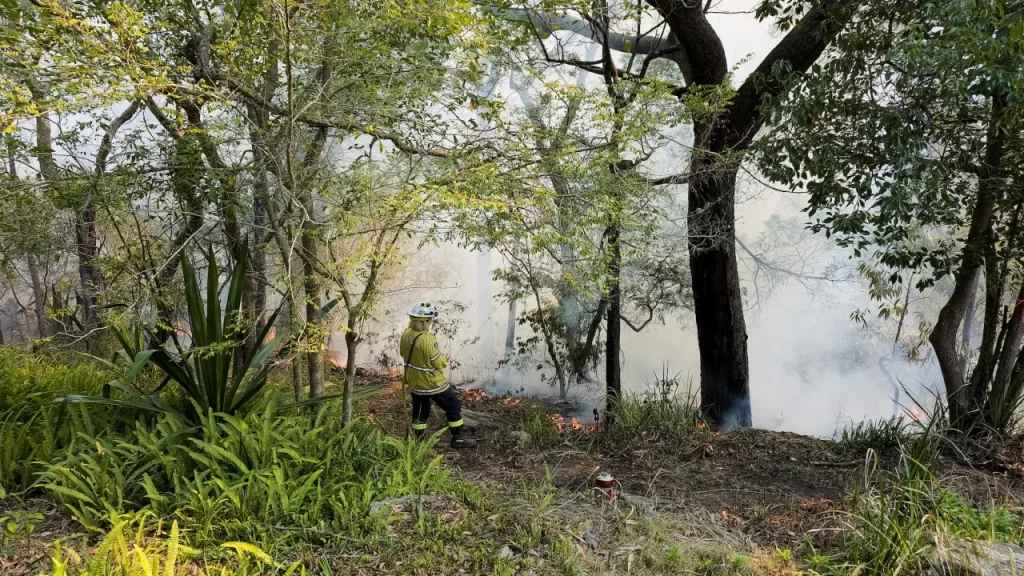The threat of intense bushfires looms over New South Wales as record spring temperatures and high winds fan the flames of more than 60 blazes already burning in Australia’s most populous state, authorities have warned.
Several cities along the east coast saw record spring temperatures Tuesday, according to Australia’s Bureau of Meterology (BOM). Sydney, the NSW capital, was expected to record its hottest September day ever Wednesday, with BOM forecasting a high of 35 degrees Celsius (95 degrees Fahrenheit).
Senior BOM meteorologist Miriam Bradbury said NSW was experiencing “record September heat, dangerous fire weather conditions and gusty winds,” in a video posted Wednesday to X, formerly known as Twitter. As of Wednesday afternoon, 65 fires were burning across NSW, nearly a third of which were uncontained, the state’s Rural Fire Service (NSWRFS) said in a statement on Facebook.
“It’s the worst risk we’ve faced since the Black Summer fires of 2019,” NSWRFS commissioner Rob Rogers said Tuesday, according to public broadcaster ABC, referring to the 2019-2020 bushfire season that killed dozens of people and a billion animals as it burned through more than 10 million hectares.
The NSWRFS on Tuesday enacted a total fire ban, including on barbecues, camp fires and activities like welding, for Sydney and the surrounding area. The warnings for NSW come as bushfires also burn in Queensland, Tasmania and parts of central Australia near the tourist town of Tennant Creek. As of Monday, the Tennant Creek fire had burned more than a million hectares of land in the Northern Territory, according to authorities.
Last month, the Australasian Fire Authorities Council (AFAC), the national council for fire and emergency services in Australia and New Zealand, predicted an increased risk of bushfires across Australia – especially in the Northern Territory, Queensland and New South Wales – due in large part to climate change.
“The climate influences driving increased risk of bushfire this season are widespread,” said AFAC CEO Rob Webb. “Almost the entire country can expect drier and warmer conditions than normal this spring, so it is important for Australians be alert to local risks of bushfire over the coming months, regardless of their location.”
It comes after the country saw its 10th driest August and what BOM senior climatologist Zhi-Weng Chua said in a Facebook video was the “warmest winter on record.”
Australia now seems poised for especially hot months ahead. On Tuesday, BOM declared an El Niño weather event was underway, which typically results in a warmer, drier spring and summer and an increased risk for bushfires.
“This summer will be hotter than average and certainly hotter than the last three years,” said Karl Braganza, BOM manager of climate monitoring, according to CNN regional affiliate 9News. The BOM forecasts cooler temperatures in NSW for the coming days, with the heat wave and fire danger threats expected to move north then west by the end of the week.
— CutC by cnn.com


